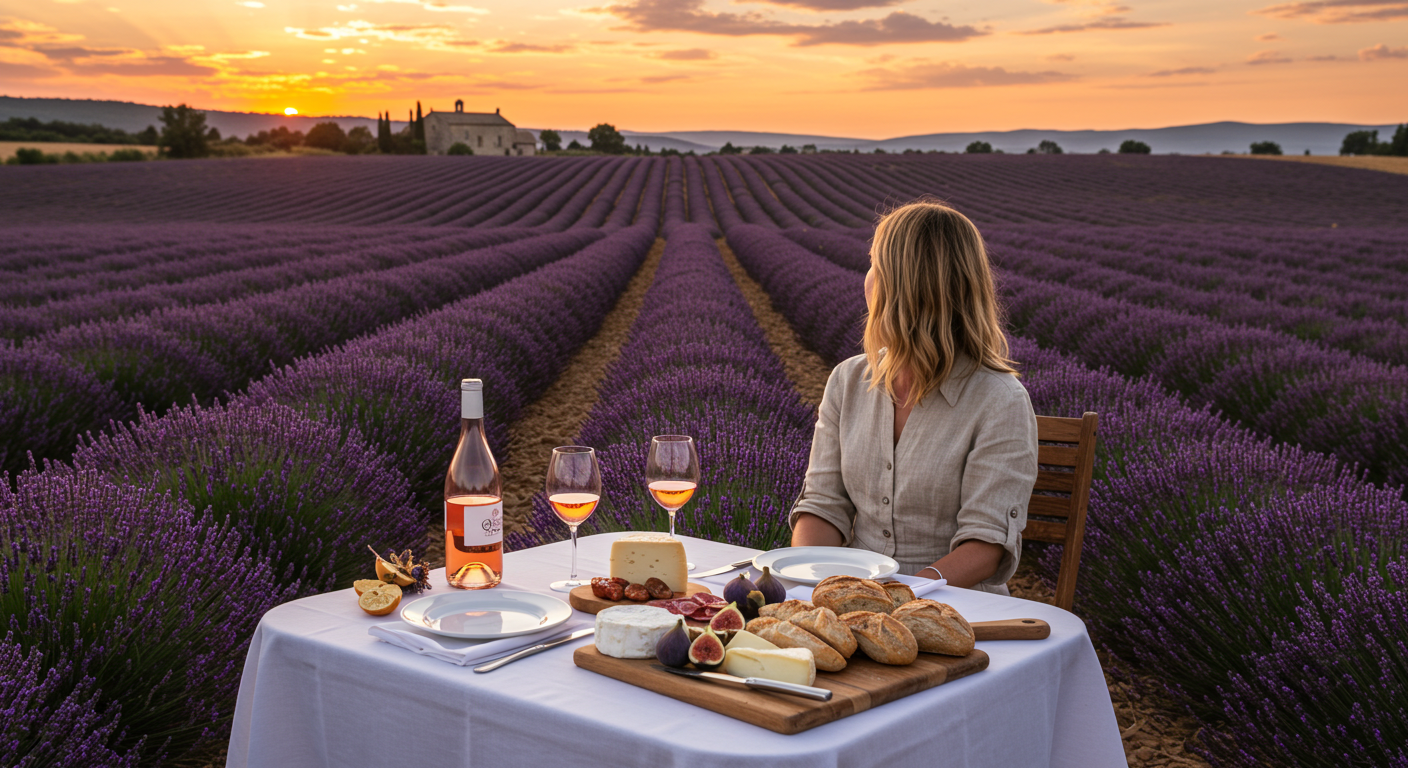
Let’s be honest—some travel experiences are worth emptying your wallet for. After exploring France on both shoestring and silk-lined budgets, I’ve concluded that certain French luxuries aren’t just extravagant; they’re investments in memories that will haunt you (in the best way) for decades.
This guide isn’t about spending foolishly. It’s about strategic splurging—knowing exactly which experiences deserve your hard-earned euros and which are merely gilded tourist traps. Consider this your permission slip to indulge in France’s most magnificent offerings without a side of buyer’s remorse.
Michelin-Starred Dining Experiences in France
France’s gastronomic scene is the Code Playground of the world’s most innovative chefs, but not all stars are created equal.
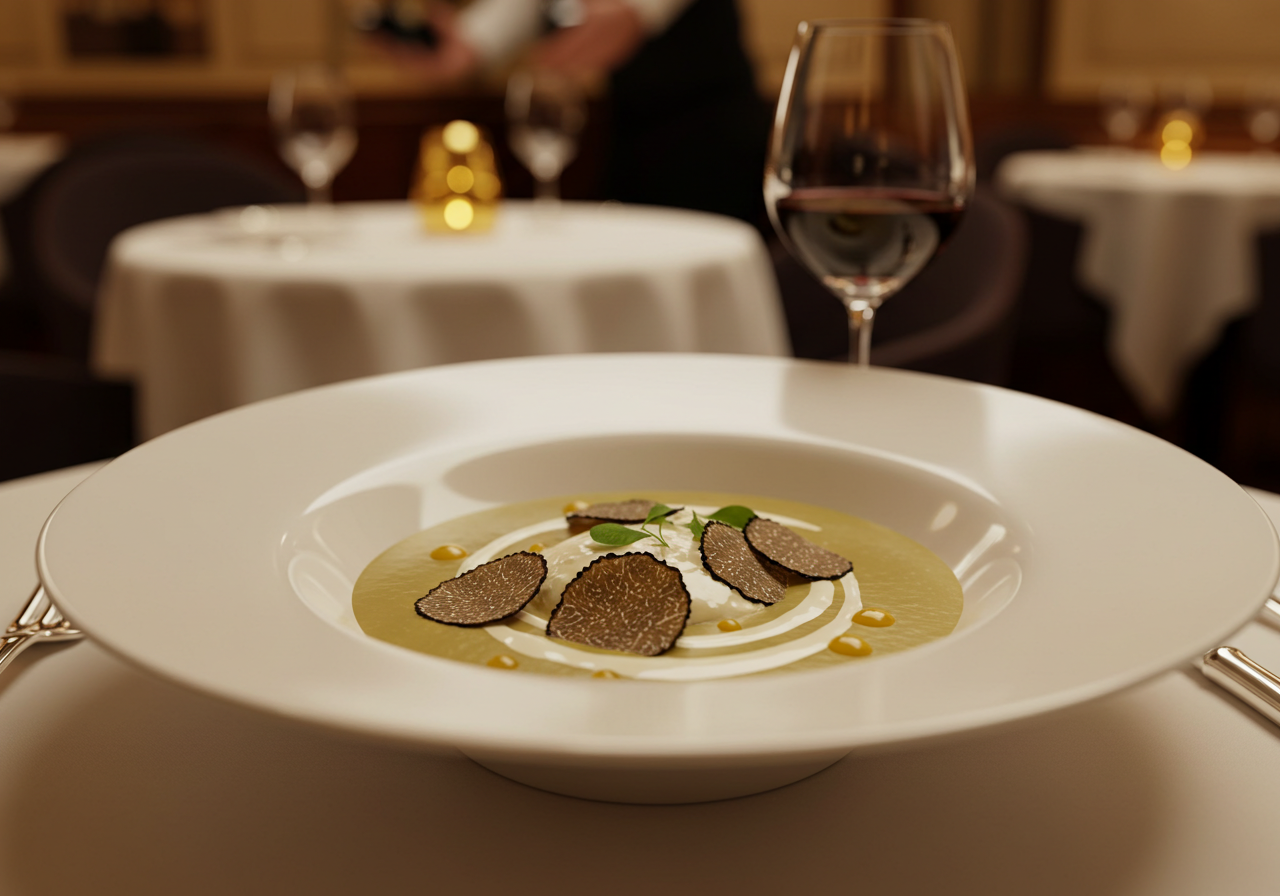
The Three-Star Experience: If you’re going to have one astronomically priced meal in your life, make it at Guy Savoy in Paris. Unlike some high-end restaurants where you feel like you’re dining in a museum, Guy’s approach combines technical perfection with actual joy. Their artichoke soup with black truffle will ruin you for all other soups. Forever.
The Underrated Two-Stars: Skip the tourist-packed three-stars and discover Philippe Mille’s Le Parc at Les Crayères in Champagne. The setting—a château surrounded by manicured gardens—combined with impeccable service makes the €200 tasting menu feel like daylight robbery (in your favor).
The Countryside One-Stars: La Bastide de Capelongue in Provence serves food that tastes like it was harvested that morning (because it was). Chef Edouard Loubet’s way with local herbs and flowers creates dishes that actually taste like the landscape around you.
Insider Tip: Make lunch reservations instead of dinner at three-star establishments. The menu is often similar but 30-40% cheaper, and the natural light allows you to actually see the artistry on your plate.
Luxury Palace Hotels and Accommodations in France
France’s “Palace” designation isn’t just marketing; it’s an official government classification above five-star requiring exceptional service, historical significance, and cultural contribution.
Paris Palace Hotels
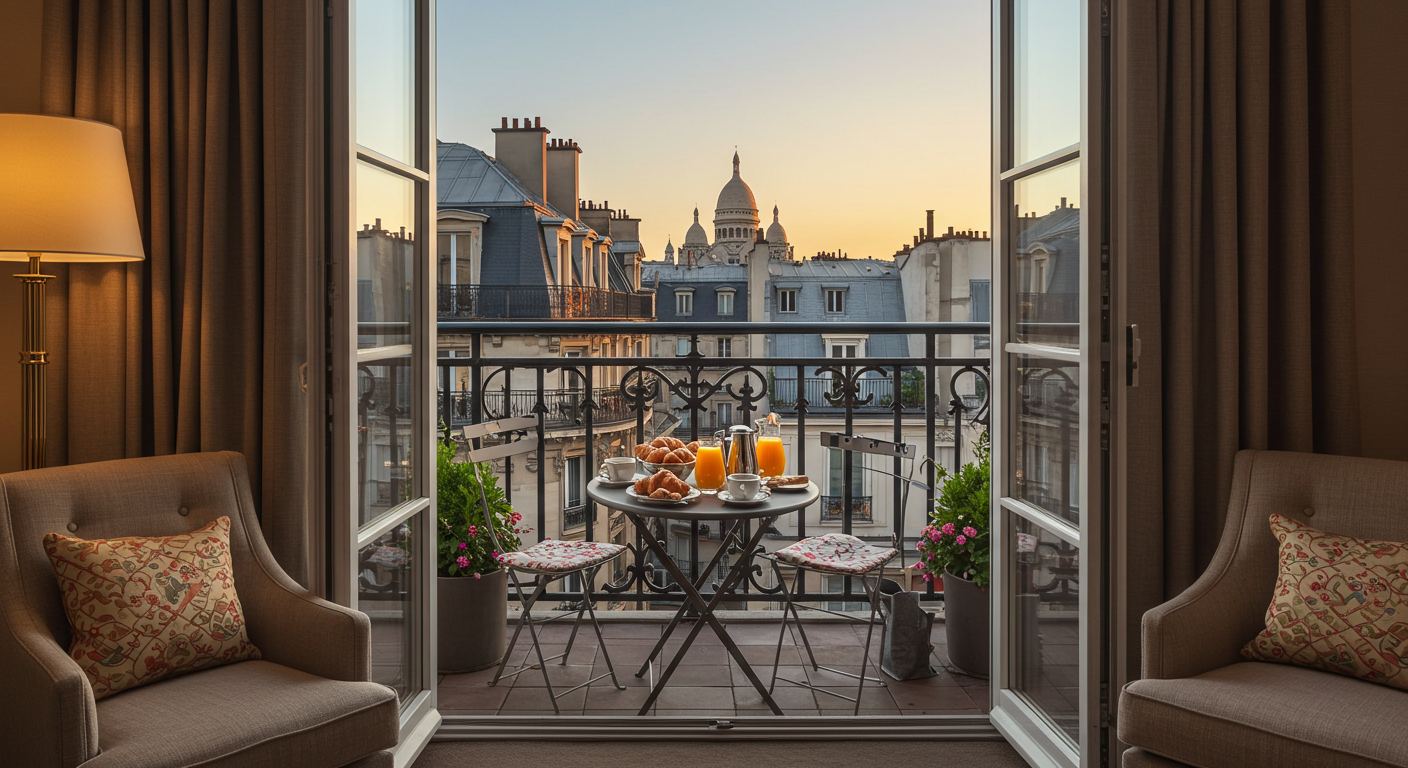
Le Bristol Paris isn’t just a hotel; it’s a masterclass in understated elegance. Their rooftop pool overlooks Parisian rooftops, and the staff somehow remember not just your name but your preferences after a single interaction. Request room 725 for its terrace views of Sacré-Cœur.
French Riviera Luxury Hotels
Château de la Chèvre d’Or in Èze perches dramatically on a cliff between Nice and Monaco. The rooms are lovely, but the infinity pool—seemingly suspended over the Mediterranean—is where your social media followers will question if you’re actually just using luxury stock photos.
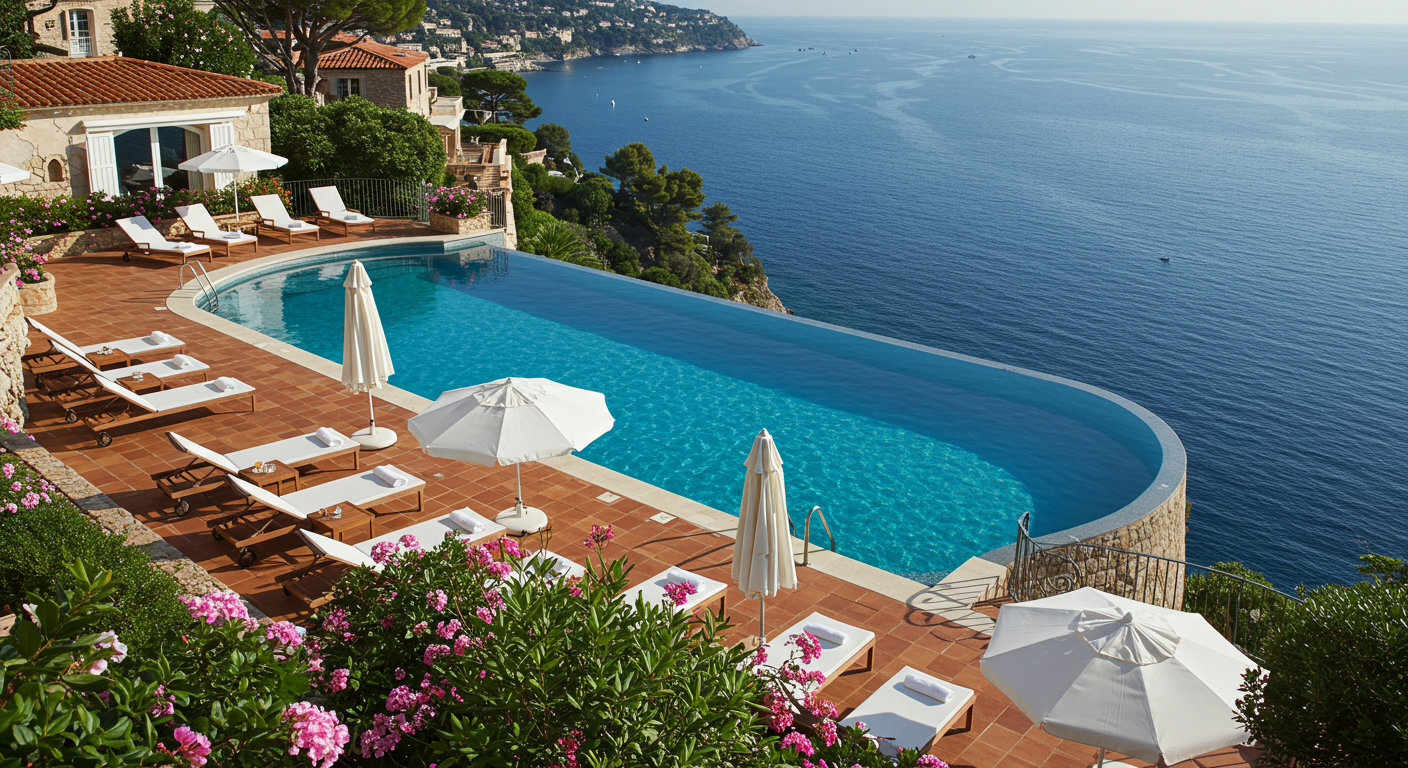
Boutique Luxury: For less ostentatious luxury, La Réserve Paris Hotel feels like staying in a friend’s mansion—if your friend had impeccable taste and a staff of 30. Their butler service isn’t intrusive but magically anticipative.
Worth-It Splurge: Book the hotel’s private chauffeur for airport transfers. After a long flight, being greeted by name and whisked away in a luxury vehicle feels less like extravagance and more like mental health care.
Private Tours and Exclusive Experiences in France
Mass tourism can turn even magical experiences into cattle calls. Private guides unlock doors—sometimes literally—that remain closed to regular visitors.
After-Hours Museum Tours
Private tours of the Louvre after closing hours exist, and they’re worth every euro. Imagine standing alone with the Mona Lisa for a full five minutes. Portals like GetYourGuide can arrange this for approximately €500 per person.
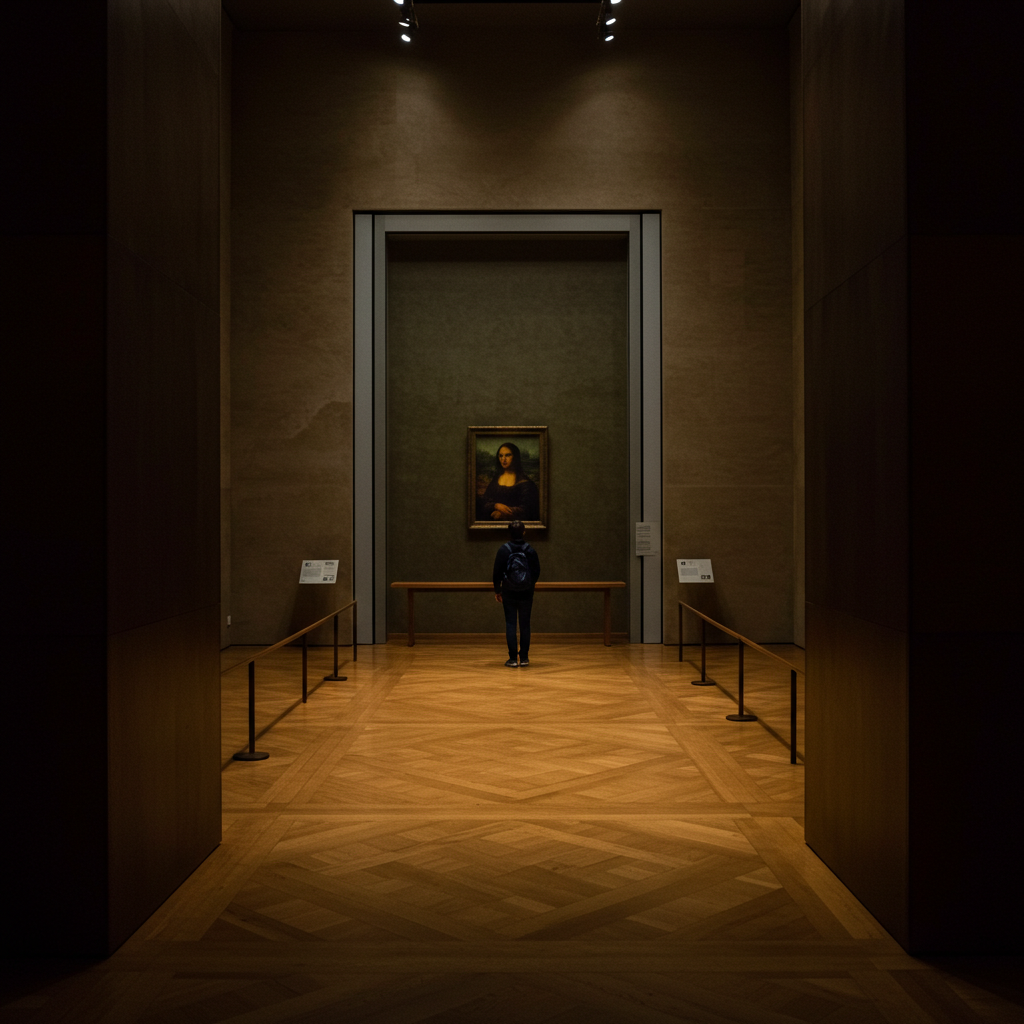
Champagne Cave Private Experiences
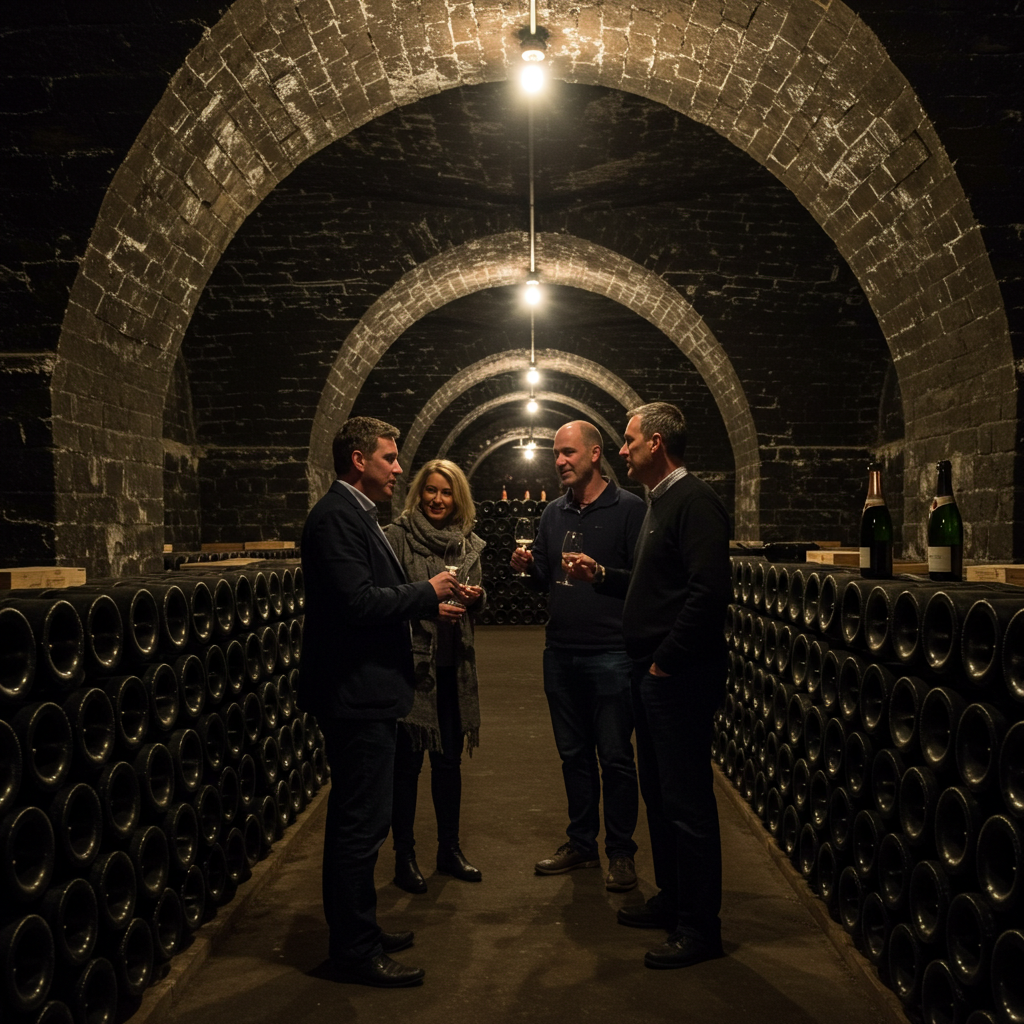
Skip the commercial champagne house tours and arrange a private visit to small producers like Champagne Tarlant, where the family has been making wine since 1687. For roughly €500, they’ll open bottles they don’t sell to the public while explaining their biodynamic approach.
Helicopter and Aerial Tours
See the geometric perfection of Bordeaux’s vineyards from above before landing directly at châteaux closed to regular visitors. Pricey at approximately €1,200 per hour, but the perspective—both literal and philosophical—is unmatched.
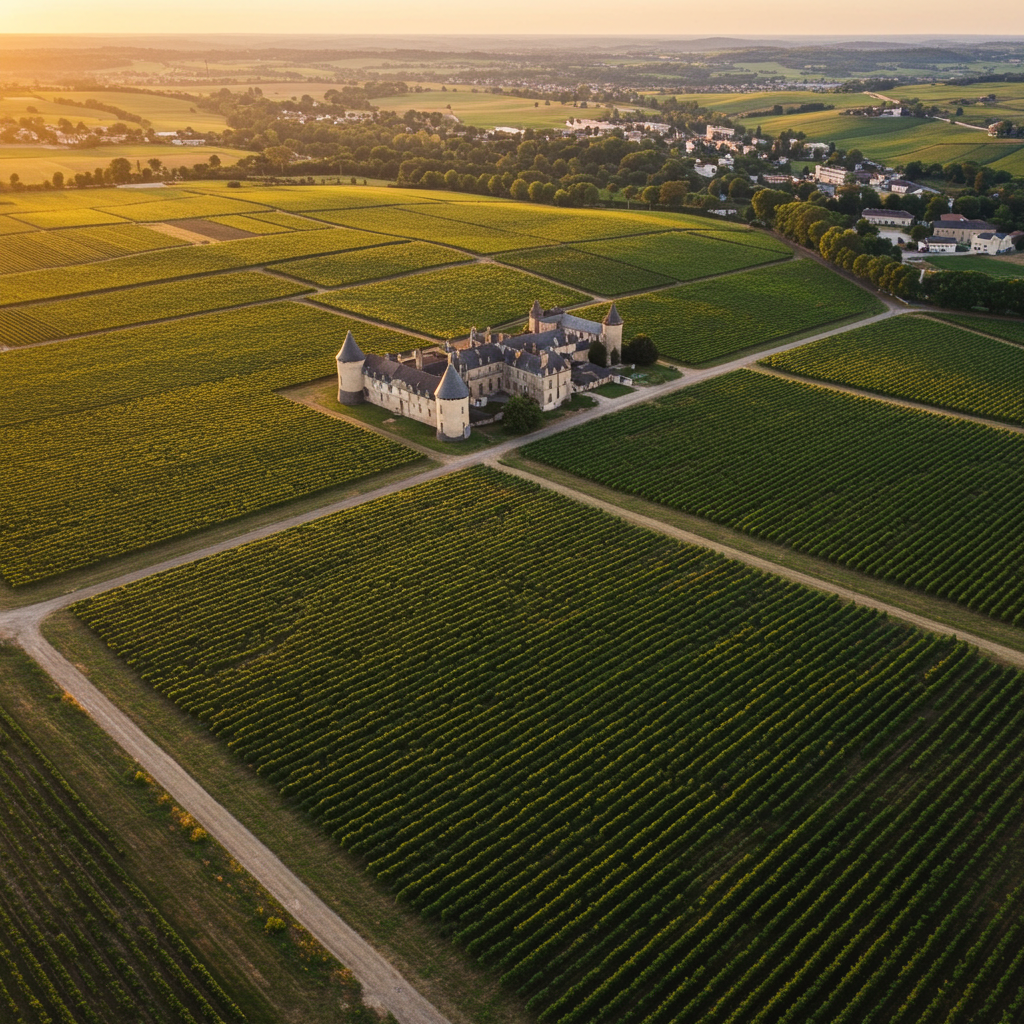
Private Cooking Classes and Culinary Tours
Spend a day with a Parisian chef, first shopping at markets where vendors know them by name, then preparing a meal in their home kitchen. These connections typically come through high-end concierge services but deliver authentic experiences beyond what money alone can buy.
Reality Check: Some experiences genuinely can’t be replicated at lower price points. A private dawn hot air balloon ride over Loire Valley châteaux provides perspectives and photographs impossible to capture any other way.
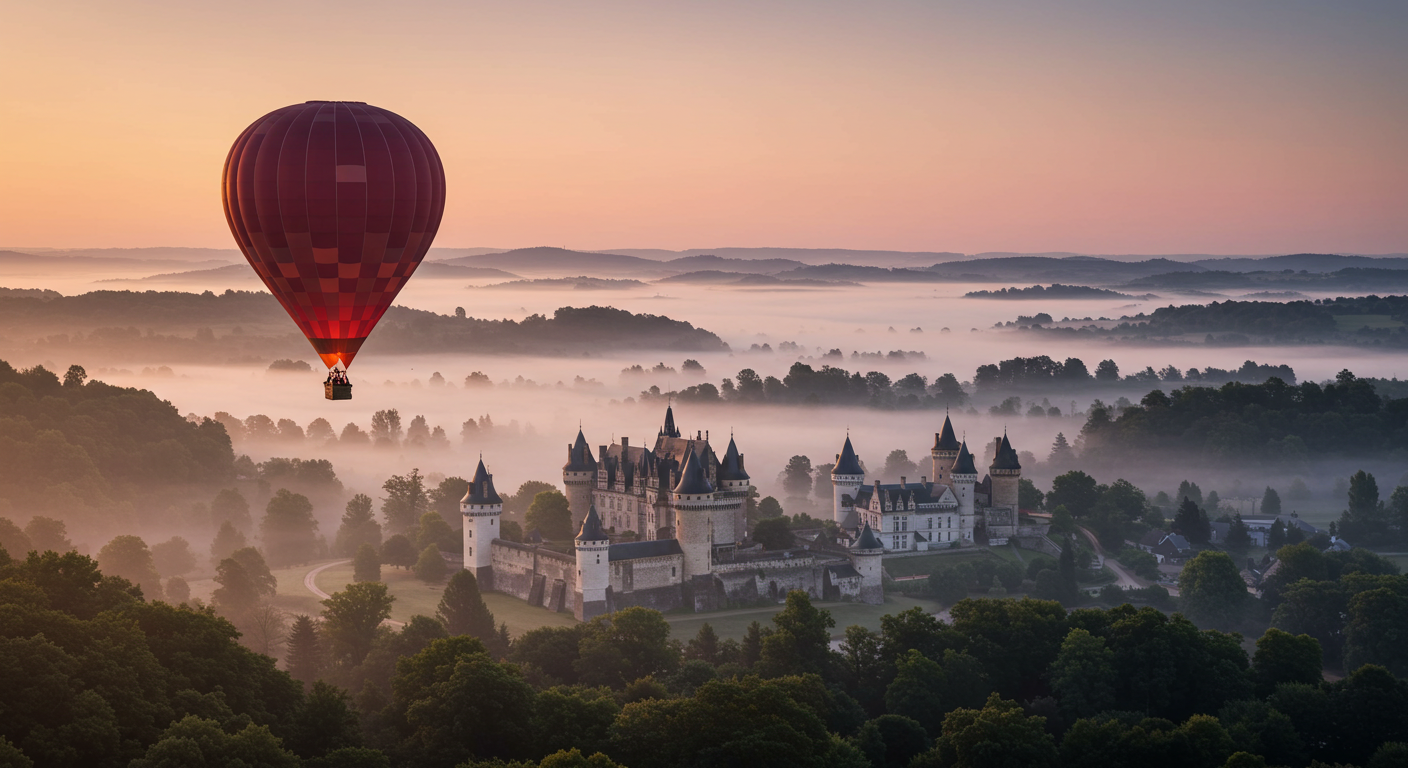
Luxury Shopping and Artisan Experiences in France
French luxury shopping isn’t just about logos; it’s about craftsmanship that improves with age.
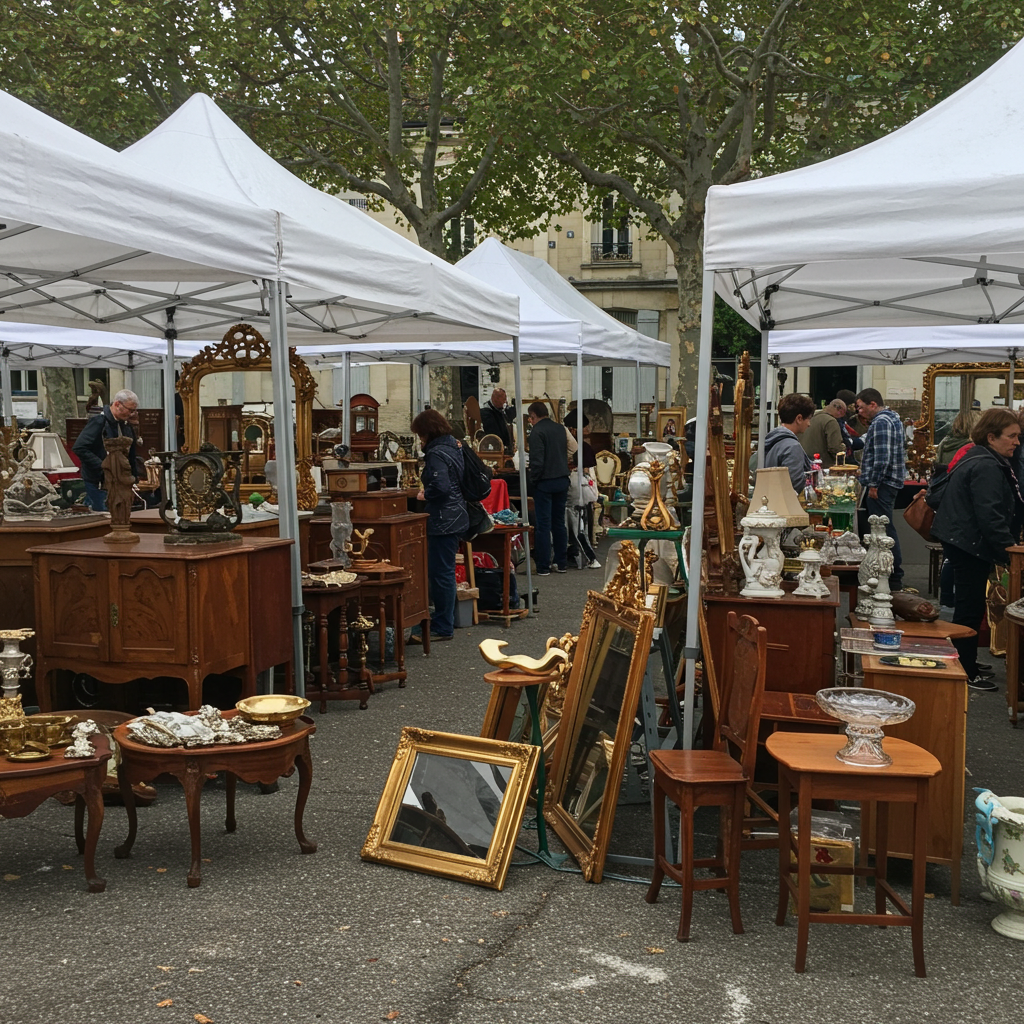
Beyond Avenue Montaigne: Skip the flagship stores where tourists queue and head to Le Bon Marché on Paris’s Left Bank. The selection is curated rather than comprehensive, and personal shoppers can be arranged for free with advance notice.
Bespoke Experiences: Commission custom perfume at Parfums de Nicolaï in Paris, where descendents of the Guerlain family create signature scents based on your preferences and skin chemistry. At approximately €500, it’s an investment in something truly personal.
Antique Hunting: The real treasures aren’t in tourist shops but at Chatou Antiques Fair (held March and October). Serious collectors fly in specifically for this event, where 18th-century furniture can cost less than mass-produced modern pieces.
Artisanal Investments: Visit Bernard Marrey’s workshop in Burgundy, where he creates custom knives that become family heirlooms. At €300-1,000 per knife, they’re not cheap, but they’re designed to last generations.
Souvenir Strategy: Instead of multiple forgettable purchases, invest in one significant piece that will transport you back to France every time you use it. A copper pan from E.Dehillerin will outlive you while improving everything you cook.
French Riviera Luxury Experiences
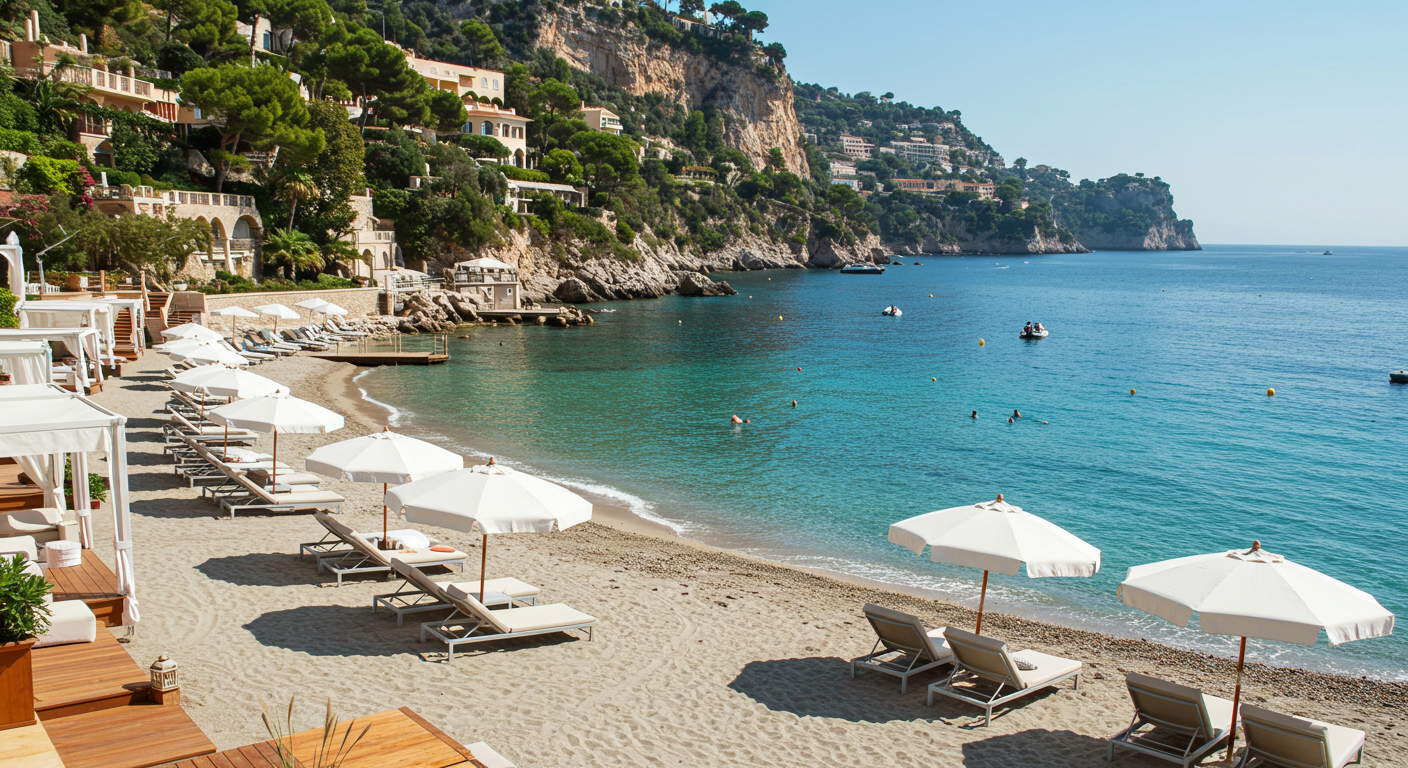
The French Riviera’s reputation for excess is well-earned, but there are ways to experience it that feel exclusive rather than extravagant.
Private Beach Clubs and Coastal Access
Reserve a daybed at Paloma Beach in Saint-Jean-Cap-Ferrat weeks in advance. At €150 per day, it’s your entry ticket to the French Riviera of your imagination—crystalline waters, impeccable service, and not a tourist t-shirt in sight.
Yacht Charters and Maritime Luxury
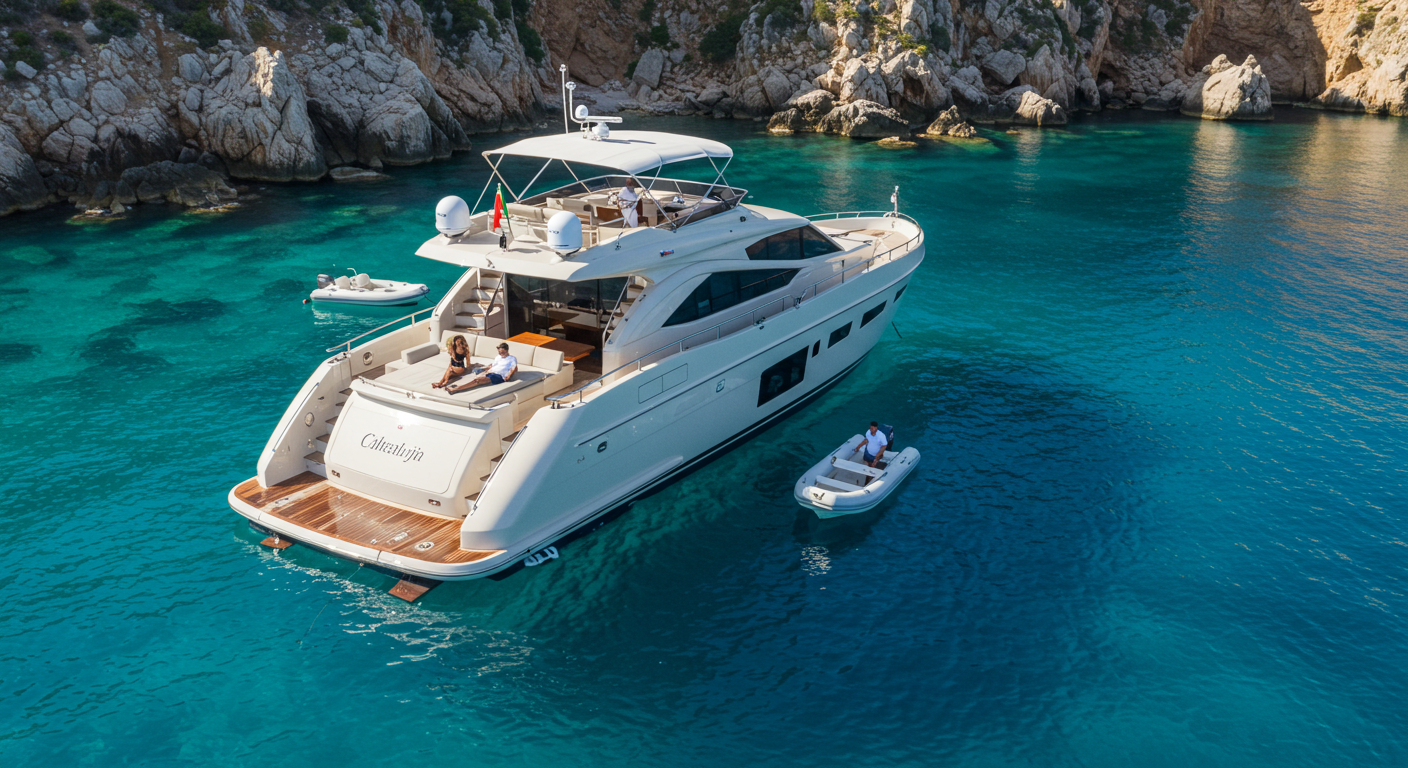
A full-day private yacht charter from Antibes (approximately €2,500) provides access to coves and beaches unreachable by land. Arrange it through GetYourGuide for captains who know exactly which coves remain empty even in high season.
Exclusive Island Escapes
Book one of only 40 rooms at Le Mas du Langoustier on Île de Porquerolles, where cars are banned and beaches remain pristine. The combination of exceptional cuisine and genuine tranquility justifies the €500+ nightly rate.
Extraordinary Accommodations Beyond Paris
Alpine Luxury: Four Seasons Megève offers ski-in/ski-out access to slopes typically shared with European royalty. Their heated pools surrounded by snow create Instagram moments that actually deliver in real life.
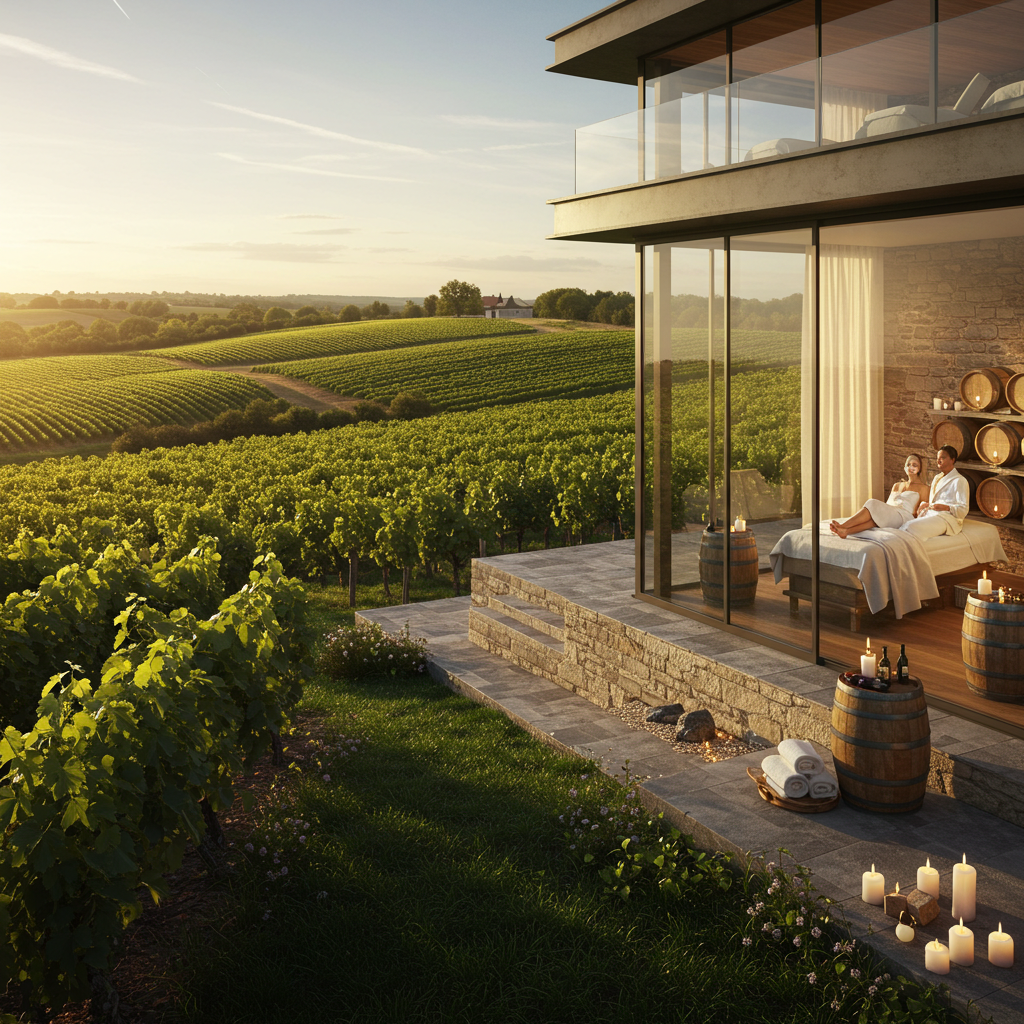
Vineyard Immersion: Royal Champagne Hotel & Spa sits directly among the vines with floor-to-ceiling windows that showcase the exact landscape responsible for your champagne. Their spa treatments using grape-derived products aren’t just marketing—they’re legitimately transformative.
Provençal Perfection: La Bastide de Gordes clings to a cliffside in one of France’s most beautiful villages. Book the 1,600 square foot Cassiopée Suite with its private terrace and try to imagine ever wanting to leave.
The Questions Everyone Asks (But Feels Weird Asking)
Look, I get it. Planning a luxury trip to France while trying not to sound like you’re either bragging or completely clueless is a delicate dance. Here are the questions that pop up in my DMs approximately 847 times per month.
Final Thoughts: The Luxury of Intention
The true luxury of travel isn’t measured in euros spent but in experiences that remain unavailable to those simply following guidebook recommendations. France rewards travelers who approach luxury with intention—seeking not just exclusivity but authenticity, not just expense but excellence.
The most precious luxury remains time—to linger over a three-hour lunch without checking your watch, to watch the sunset from your private terrace, to form connections with people whose life’s work is creating beauty.
These experiences—curated carefully and experienced fully—are worth every euro. They’re not just purchases; they’re investments in memories that appreciate rather than depreciate over time.
